We have a dedicated post on the topic of ETFs that explains exactly what they are, how to buy them, and which are the biggest and most popular ones. But if you want to dive even deeper into this topic, a book about ETFs is probably a better option for you.
Also read: What is the January Effect?
There are quite a few of them available from various writers, some good, while others not so much. We’ve done the research so you don’t have to and came up with a list of the eight best ETF books to get.
The best ETF book overall: Investing in ETFs For Dummies
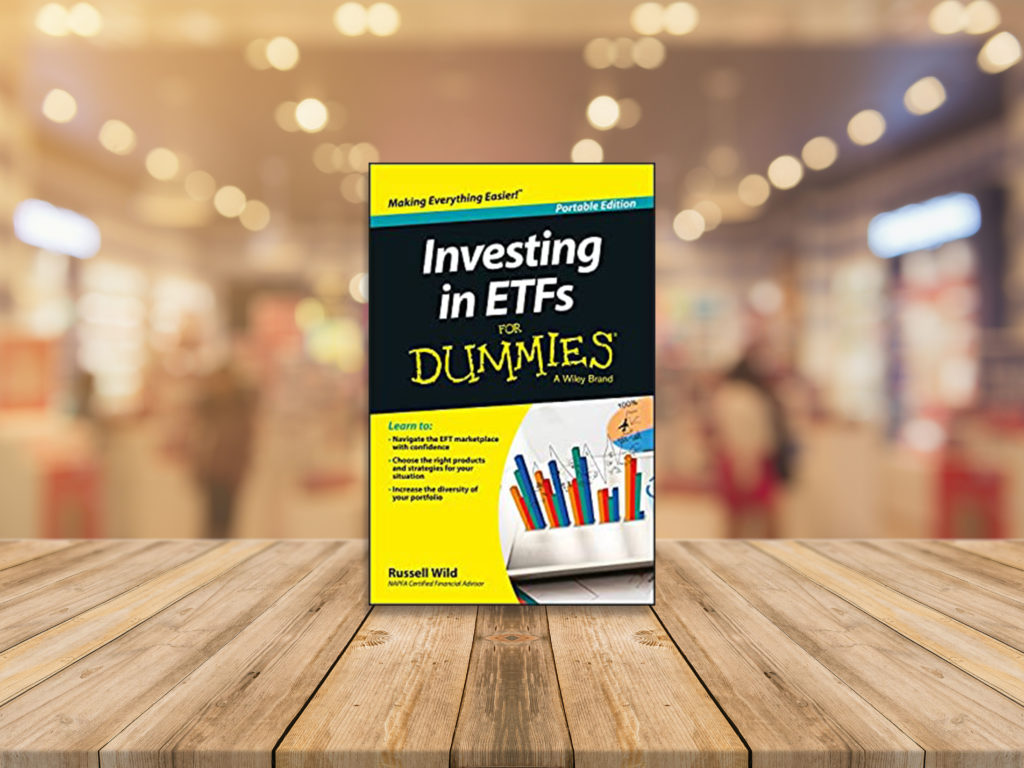
All the eight of the best books about ETFs on this list are worth your time and money, but if we’d have to pick our favorite, it would be this one. Part of the popular “For Dummies” series, this book contains all the info on the topic of exchange-traded funds a newbie needs. It covers everything from what ETFs are, what types are available, how to buy your first one, and more.
The book was written by Russel Wild, an experienced wealth manager who has a few other investment-related books under his belt.
- Author: Russell Wild
- Number of pages: 252
- Amazon rating: 4.5 stars
- Published in: 2015
The ETF Investor: How to Crush It With Exchange-Traded Funds
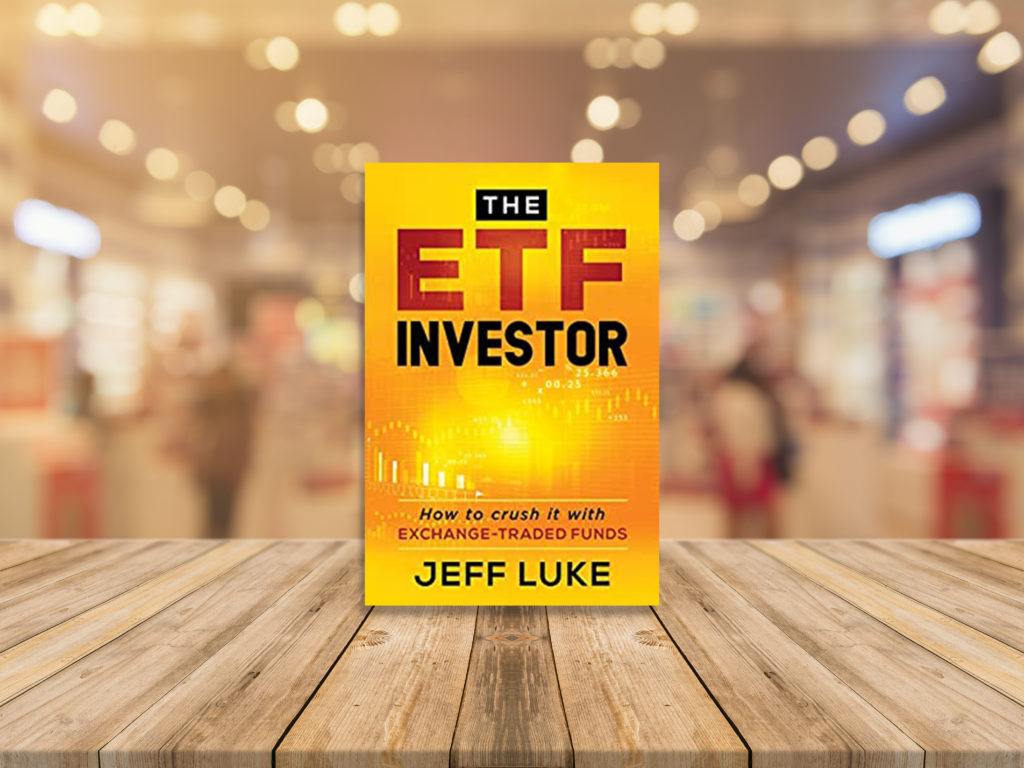
In addition to going through the basics like what are ETFs, this book also goes into detail about how to buy them. It even provides screenshots to make the process easier for you. Additionally, it highlights the 19 best ETFs to check out and talks about the different order types you should know when buying exchange-traded funds.
Read next: The best budgeting apps
Jeff Luke wrote the book, which is just one of several of his on the topic of investing. So if you like The ETF Investor, you can check out Jeff’s other publications here.
- Author: Jeff Luke
- Number of pages: 187
- Amazon rating: 4.2 stars
- Published in: 2020
The Set and Forget 11% Portfolio

This book is all about strategy. It won’t go into detail about what ETFs are and how to buy them, but will instead reveal the author’s ETF investment strategy. It’s based on simplicity, as it requires just four trades per year and averages a return of around 11% annually, according to the author. We haven’t tested it out, but since diving deeper into other people’s investment strategies is never a bad thing, we’re still recommending this book.
Tim Morris, the author of this ETF book, has also written several other books on day trading, technical analysis, and other investment topics. You can learn more about him on his website called TradeMoreStocks.
- Author: Tim Morris
- Number of pages: 53
- Amazon rating: 3.9 stars
- Published in: 2019
The Ultimate ETF Guidebook: A Comprehensive Guide to the World of Exchange-Traded Funds
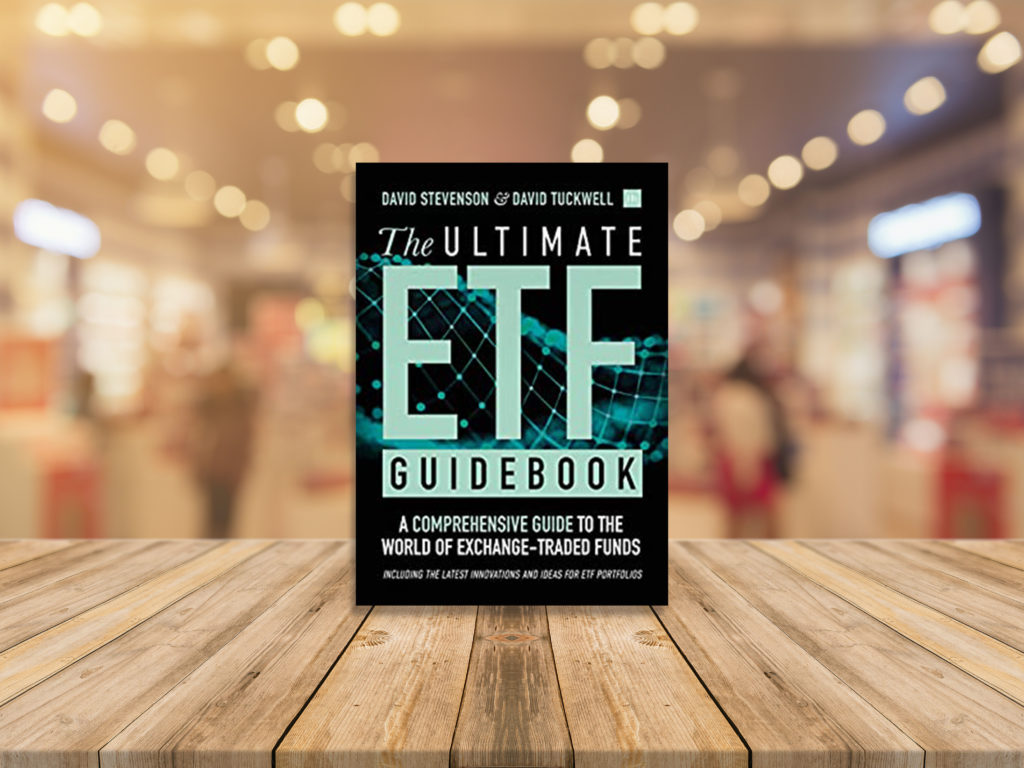
Staying true to its title, this ETF book goes deep into the topic. It’s one of the longest books on this list and should give you more than enough info to get started. In addition to learning the basics of exchange-traded funds, the authors also reveal their selection of the top 101 ETFs across all asset classes.
Also read: Can you lose more money than you invest?
The Ultimate ETF Guidebook was written by the two authors listed below. Not much is known about them aside from the fact that one of them (Stevenson) has a few other investment books under his belt.
- Author: David Stevenson and David Tuckwell
- Number of pages: 347
- Amazon rating: 3.9 stars
- Published in: 2019
ETF Investing: The Beginners Guide to Create Passive Income and Achieve Financial Freedom with ETF
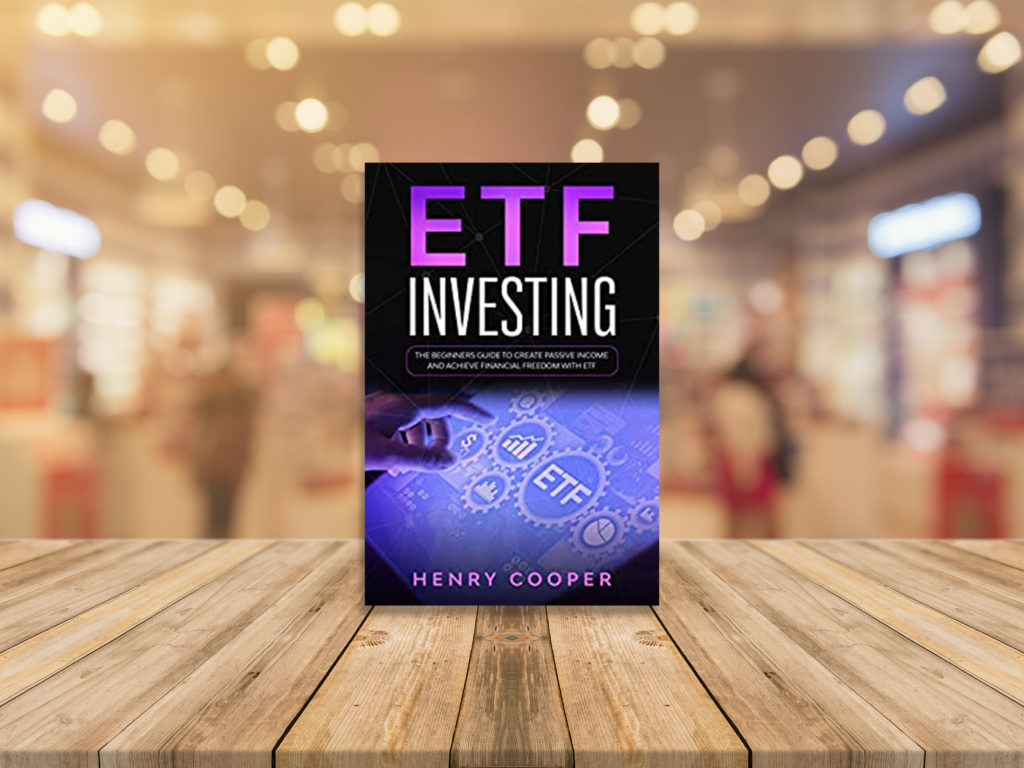
While not the shortest ETF book on this list, this one is a quick read due to its length of only 90 pages. However, those pages contain all the info you need, as they explain what are ETFs, how to buy them, how to set up your portfolio, and more.
Unfortunately, not much is known about the author — looks like he likes to keep a low profile. According to his page on Amazon, he has written two additional investing books so far.
- Author: Henry Cooper
- Number of pages: 90
- Amazon rating: 3.9 stars
- Published in: 2020
The ETF Book: All You Need to Know About Exchange-Traded Funds
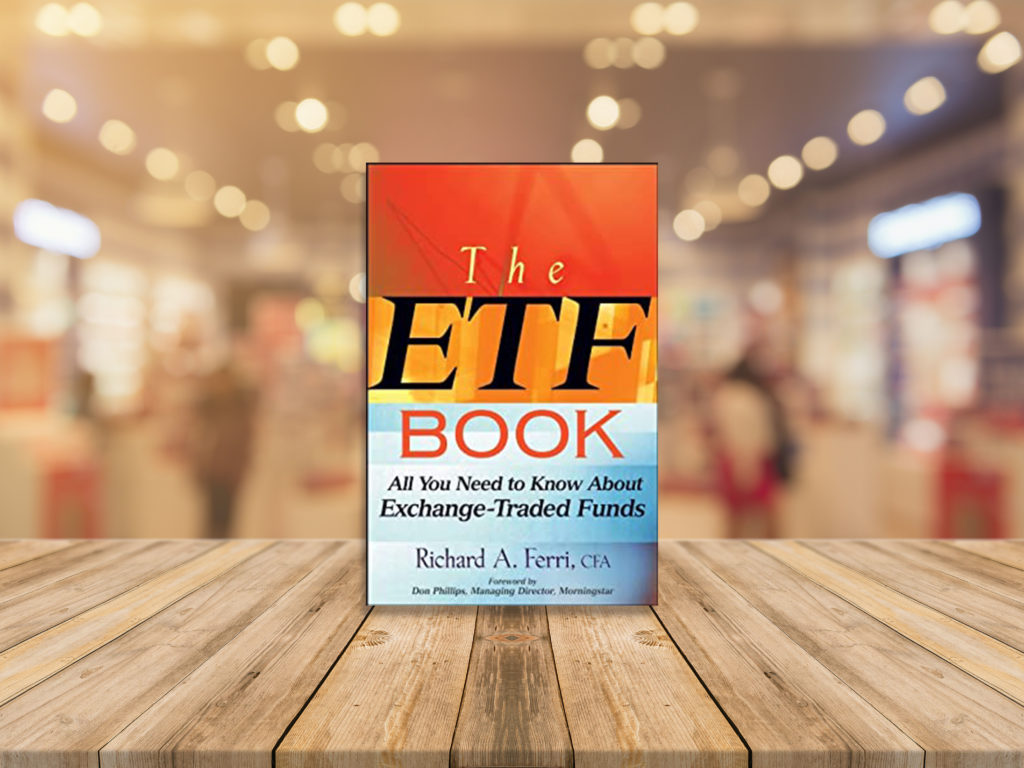
It’s 416 pages long, so you can be sure it covers more than just the basics. If you want to go as deep as possible into the topic of ETFs, this is the book for you. You’ll learn how to pick and manage your ETF portfolio as well as other useful things that will help you on your investment journey.
The author has a Master’s degree in finance and has written a number of books that cover everything from stocks to passive investing.
- Author: Richard A. Ferri
- Number of pages: 416
- Amazon rating: 4.3 stars
- Published in: 2009
Index Funds and ETFs: What they are and how to make them work for you
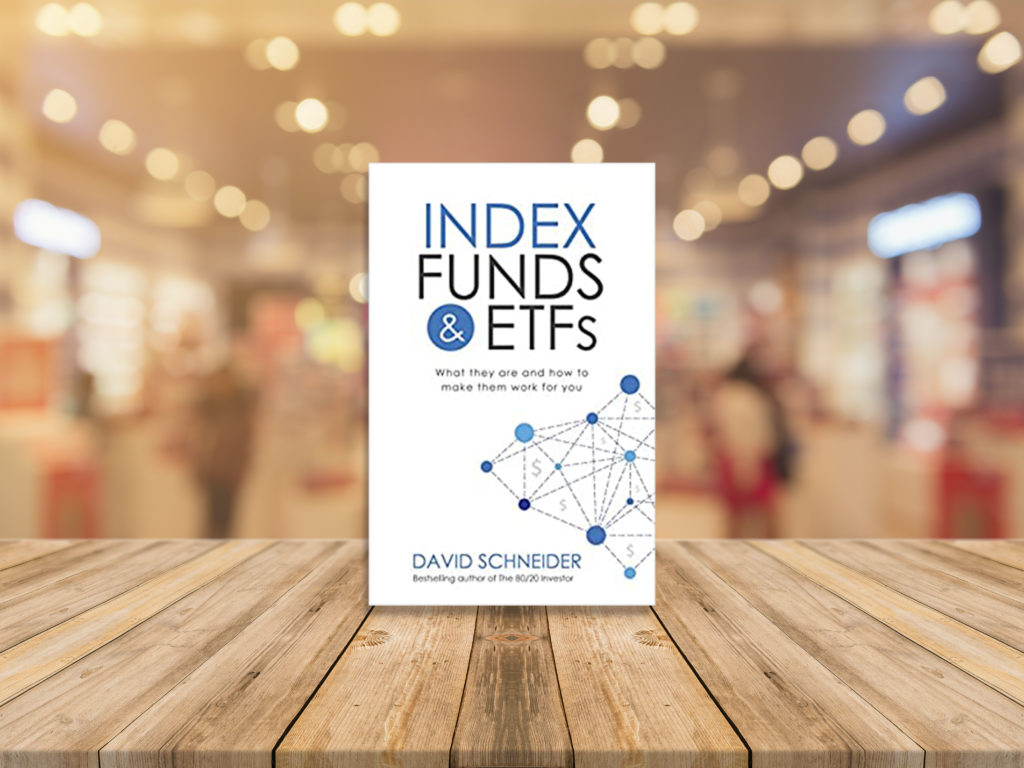
What are index funds, how standard index funds differ from index ETFs, and what makes them better than mutual funds are just a few of the things you’ll learn in this book. The author also explains how to apply the 80/20 investing principle to index funds investing, backed by examples.
The book’s author is an investment analyst, writer, and wealth management expert. He has also written books on the topics of retirement, modern investing, and more.
- Author: David Schneider
- Number of pages: 170
- Amazon rating: 4.3 stars
- Published in: 2017
The ETF Handbook
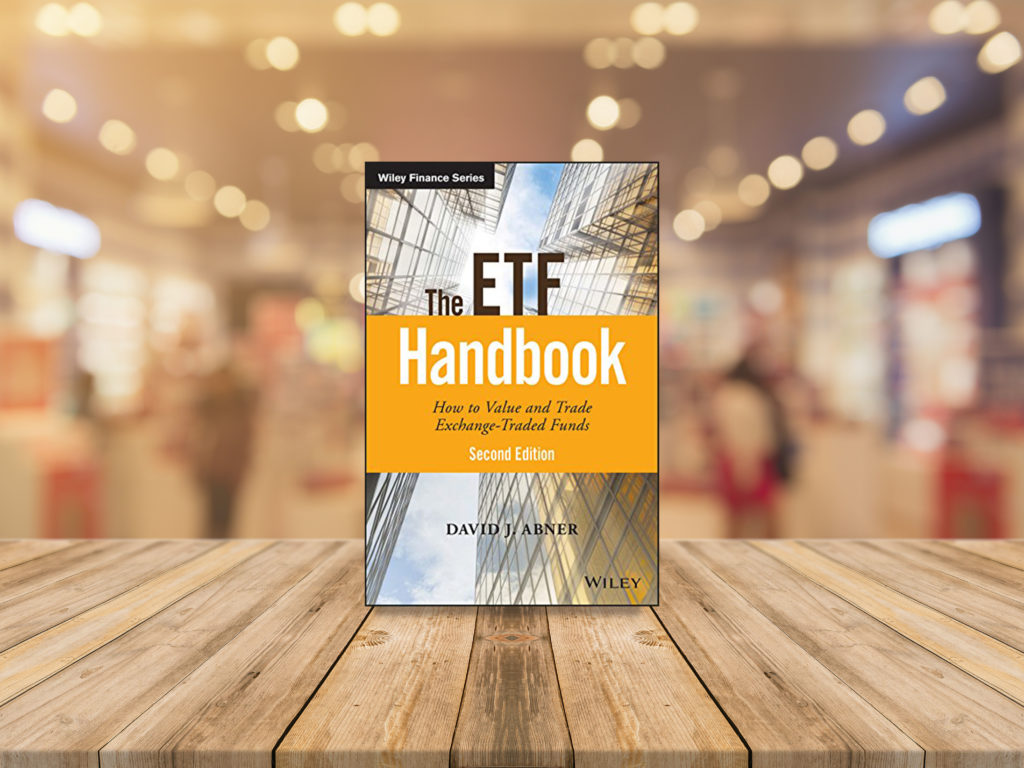
This is quite a long book, and an expensive one as well. But it’s also very comprehensive and is designed specifically for institutional investors and professional advisors seeking to improve ETF profitability. It teaches you how to effectively monitor, analyze, and execute ETFs.
It also goes into detail about the technical side of ETF that’s important when investing in exchange-traded funds or stocks in general. However, it’s probably not the best book for a beginner, but it’s definitely one you should put on your reading list.
- Author: David J. Abner
- Number of pages: 368
- Amazon rating: 3.6 stars
- Published in: 2016
Investing Made Simple: Index Fund Investing and ETF Investing Explained in 100 Pages or Less
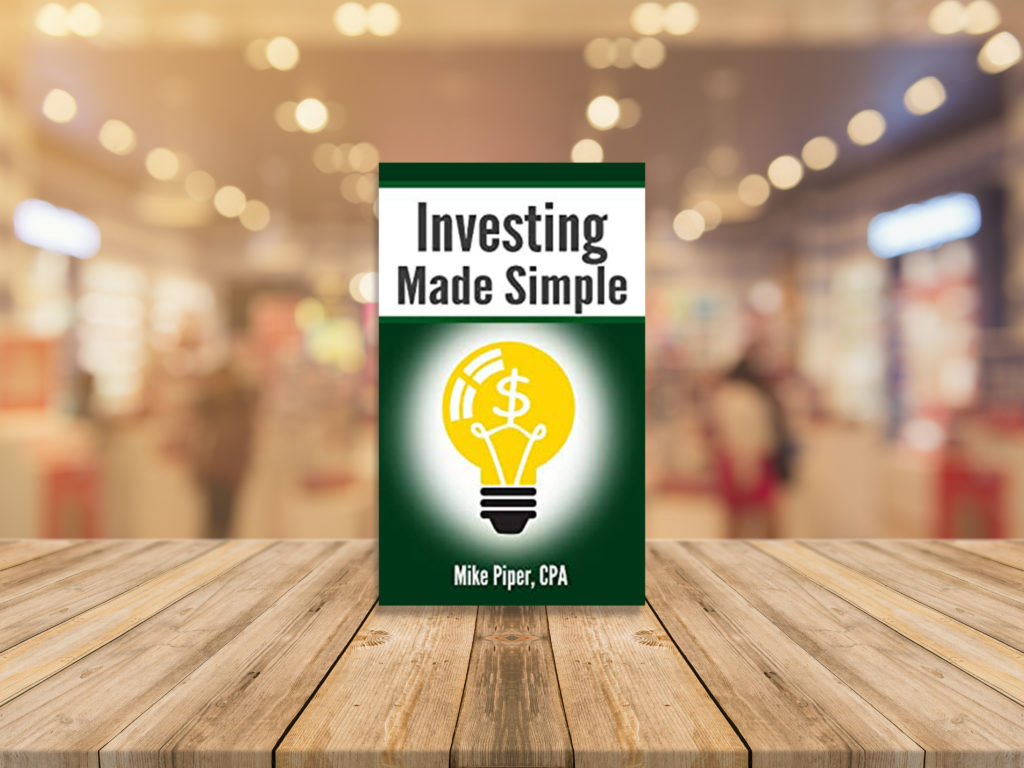
The last title on this list of the best ETF books gets to the point right away, offering all the info you need in roughly 100 pages. ETFs are just a part of the book, as the author also explains things like asset allocation, risk tolerance, and more.
The author of the book is the man behind the Oblivious Investor blog and several other books including the popular Accounting Made Simple.
- Author: Mike Piper
- Number of pages: 118
- Amazon rating: 4.5 stars
- Published in: 2020
Time for the next step

Reading and learning about ETFs and investing in general is great, but don’t take it too far at the beginning. I know people who go from book to book trying to gain as much knowledge about investing as possible, but they forget to put their knowledge into action.
Reading is easy, while investing can be frightening for those just starting out. The important thing is just to get started as soon as you gain the basic knowledge you need. So after reading the first book, or two at most, set up an account at a broker of choice and start investing. You can always read up on the topic more once you get some hands-on experience. Remember that knowledge is power, but knowledge without action is more or less useless.
Read next: What are ETFs and are they better than stocks?
Understanding the different types of ETFs available and how to buy them is the easy part. The hard part is figuring out which ones to buy and when, as no one can be 100% sure of which direction the market will move. No book is going to help you out as much as you’d like in this area, but feel free to check out the biggest and most popular ETFs in our dedicated post linked above if you’re looking for ideas.
Note: Affiliate links on PocketToro may earn us a commission.





